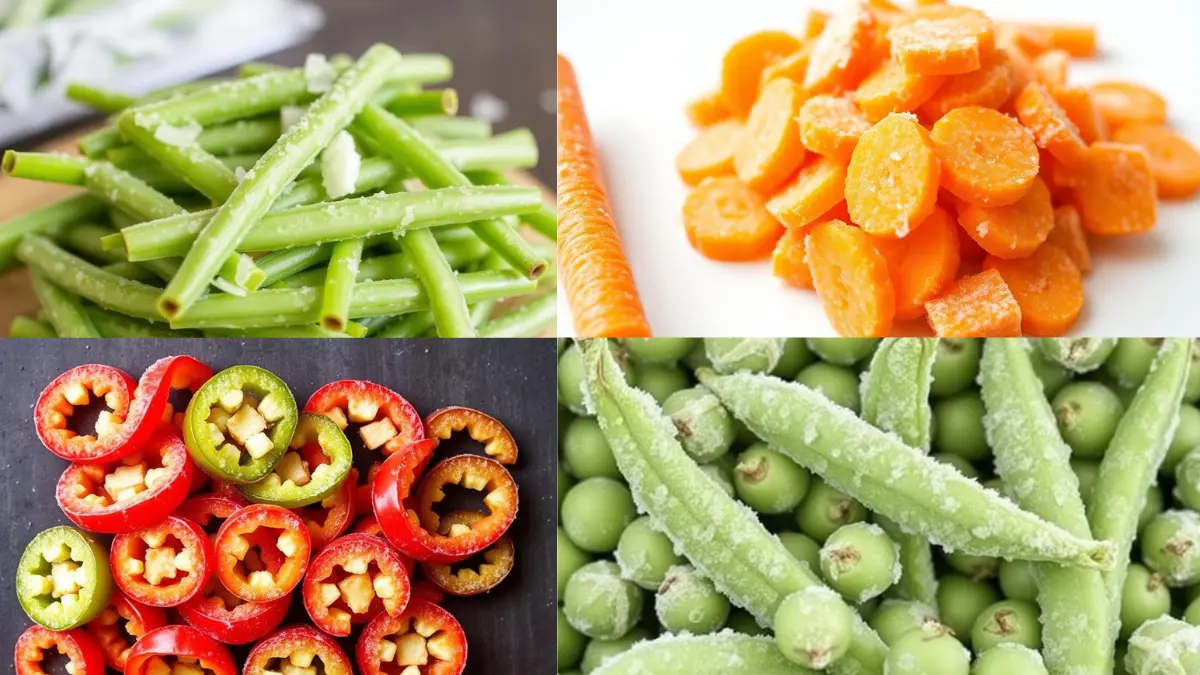Frozen Vegetables Export Guide: Documents, Certifications, Packaging & Challenges
Frozen vegetables are in demand all over the world because of their long shelf life, frequent quality and availability of the year. However, they require strict rules, control of the cold chain and compliance with proper documentation to export them. Below we answer some of the most common questions related to frozen vegetable exports.
What documents are required to export frozen vegetables internationally?
To export frozen vegetables, a set of large documents is required to ensure smooth clearance and compliance with the country’s rules:
- Commercial invoice and package list – detailed description of goods, quantity and value.
- Bill of landing or Airway Bill – proof of shipment and transport details.
- Phytosanitary Certificate – It confirms that products are free for pests and diseases.
- Original certificate – identify the country where the goods were cultivated/processed.
- Health/quality certificate – ensures food safety and adherence to import standards.
- Export statement and HS code – for customs classification and calculation of duties.
How do you maintain the cold chain for frozen vegetable shipments?
It is important to maintain cold chains to preserve the quality and safety of frozen vegetables:
- Temperature control – products should be kept – 18 ° C or less at all times.
- Reefer container – Cooled shipping container with monitoring system.
- Insulated packaging – to reduce temperature races and downs during transport.
- IoT sensor and tracking of real-time monitoring of temperature and moisture.
- Backup and storage systems – to prevent malfunction in case of delay.
What certifications are needed to import frozen vegetables into the USA/EU/Canada?
Different regions require specific certifications for importing frozen vegetables:
- USA – USDA APHIS Phytosanitary Certificate, FDA Food Facility Registration, and if organic, USDA Organic Certification.
- EU – EU Health Certificate, compliance with EFSA food safety standards, and pesticide residue limits.
- Canada – CFIA Safe Food for Canadians Regulations (SFCR) certification, labeling requirements, and organic approval if applicable.
Different areas require specific certificates to import frozen vegetables:
- USA – USDA APOHIS Phytosanitary Certificate, FDA Food Facility Registration, and if organic, USDA organic certification.
- EU – EU Health Certificate, EFSA compliance with food security standards and pesticides.
- Canada – CFIA Safe Food can be used on the Canadian Regulations (SFCR) certification, labeling requirements and organic approval.
Which HS codes apply to frozen vegetables for customs clearance?
HS (Harmonized System) codes classify products for customs clearance and tariffs. Common codes for frozen vegetables include:
HS Code 0710 – Frozen vegetables, uncooked or cooked by steaming/boiling.
Examples:
- 0710.10 – Frozen potatoes
- 0710.21 – Frozen peas
- 0710.22 – Frozen beans
- 0710.29 – Other frozen legumes
- 0710.80 – Other frozen vegetables (spinach, sweet corn, broccoli, etc.)
What are the common challenges in exporting frozen vegetables from India?
Indian exporters face some recurrent challenges while shipping frozen vegetables:
- Cold Chain Infrastructure Gap – Limited cooling and transport in rural areas
- Customs delay – inappropriate documentation can cause shipping
- Regulatory compliance – completed strict pesticide residues and microbial boundaries
- High logistics cost – Reference of container shipping can be expensive.
- Market competition – competition with suppliers established from China, Egypt and Europe.
What packaging standards ensure frozen vegetables remain fresh during transit?
Packaging plays an important role in preserving frozen vegetables during shipping at a long distance:
- Food quality multi-layer films or bags to prevent primary combustion of gaskets.
- Secondary packaging – Cartons or boxes of insulation to maintain cold temperature.
- Tertiary packaging – Palletization with stretch rap for wholesale handling.
- Moisture control use of desiccants or anti-condensation packaging.
- Shock resistance – Strong boxes for facial handling during transit.
JK International – Your Partner in Frozen Vegetable Exports
In JK International, we specialize in exporting frozen vegetables in first-class quality in global markets. Our team ensures:
- Complete documentation
- Compliance with the Import Standards
- Reliable cold chain logistics with referral containers
- High-quality packaging solutions to maintain freshness
- End-to-end control of the supply chain
If you are looking for a reliable partner in the frozen export of vegetables, JK International provides world-class export services that suit your business needs.
- Categories:
- All

